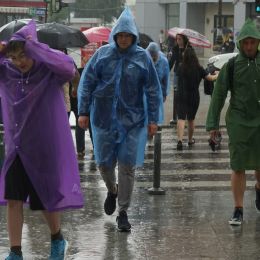PwC understands that the draft Emergency Ordinance to amend the Fiscal Code has a twofold objective: cutting the budget expenditures and widening the tax base, combined with the constant endeavor of the authorities to fight tax evasion.
PwC has seen the implementation of a batch of measures aimed at fighting tax evasion as a prerequisite to create a healthy economic environment and to encourage entrepreneurship, but authorities should be careful so as these measures will not bring Romania under the scrutiny of the EU for breach of some rules governing the Single Market.
“As for the measures intended to fight tax evasion, we not that the authorities focus on the implementation of reverse charge mechanism for domestic operations involving the categories of goods such as grains, flowers, vegetables and fruits, meat, fish and sugar. We welcome such steps, as they will no longer require VAT pre-financing along the sale chain involving several companies, with the VAT to be actually paid by the end consumer”, PwC said.
In what concerns other measures intended to fight tax evasion, the authorities are relying on the actual payment of VAT on intra-Community acquisitions of grain, flowers, vegetables and fruits, meat, fish, sugar, construction materials, as well as on imposing a minimum VAT amount due irrespective of the purchase price.
Although the measures is in fact aimed at fighting tax evasion in the trade in these high fraud risk products, PwC believes that restricting free trade – by means of new VAT payment – on any good purchased from partners from other Member States is contrary to the EU Directive regarding VAT (112/2006) and the Lisbon Treaty on the functioning of the European Union and could be subsequently challenged in national and Community Courts.
PwC’s recommendations were always aimed at curbing tax evasion, but considers this objective should be balanced with a clear and simple tax treatment. Thus, the company believes that the measure intended to include in the register of intra-Community operators all businesses carrying out intra-community operations on the basis of the clean energy charge sheet of each director/associate will increase the administrative burden on all taxpayers.
Limiting the number of bonded warehouses for storage purposes can be regarded as a discrimination measure, as it would allow only producers and their affiliate entities to store excise goods under duty-suspension arrangements. This would be contrary to the social and economic impact intended under the draft Emergency Ordinance, which is to ensure a fair competition environment for all operators involved in the trade of excise foods. Adequate monitoring of economic operators carrying out operations involving excise goods is achieved currently through computerized system to track the movement of excise goods under duty-suspension arrangements and through the very strict authorization procedure. PwC’s opinion is that the current monitoring system is good and can be used more effectively.
Levying excise duties on products other than harmonized excise goods (e.g. jewelry, furs, perfumes, weapons and yachts) will have a positive effect for the state budget. However, establishing excise duties as a percentage rate is contrary to the Community law principles so this measure will lead to the infringement proceedings by the EC against Romania.
“We also anticipate a similar discouraging impact on the business environment after the consideration of the law requirements pertaining to the transfer of shares in limited liability or shares in companies, as intended in a bill prepared by the Government. Such a measure will hamper the transfer of shares in limited liability companies by conditioning the completion on the result of the irrevocable ruling on the veto against the decision of the shareholders’ general assembly. This is likely to increase the costs and risks involved in such transactions, thus potentially impacting the M&A market in Romania which is already strongly hit by the downturn.
The fiscal authorities want to see a broadening of the tax base for income tax, through the inclusion of income from interest, capital gains, meal tickets, and compensation payments.
In a way, things will go back to the way they used to be several years ago, when income from interest, as well as the gains from stock trading were taxed. “Tax incentives were then implemented in order to stimulate certain sectors, which in our opinion could directly contribute to jumpstarting the Romanian economy. We notice the removal of some healthy tax incentives that were so difficult to hold after the Romania’s accession to EU”.
As regards the taxation of interest from sight and term deposits, current accounts or savings instruments, we should not ignore the Council Directive on taxation of savings income in the form of interest payment (Directive 2003/48/EC), which requires Member States to make a procedure available for non-residents to avoid double-taxation. Therefore in principle, incomes in the form of interest on the deposits of a non-resident from another Member State should be taxed in that Member State and not in Romania, but the Directive does not forbid a Member State where the interest payment is made to impose a withholding tax.
Thus, the draft Emergency Ordinance establishing the taxation in Romanaia of the income of non-residents from interest on deposits is not contrary to the Directive, but Romania is required in such a case to implement one of the procedures to avoid double taxation as required by the Directive. If it fails to do so, Romania may be sanctioned for not enforcing the Directive provisions.
When it comes to the pension and health insurance contributions, PwC has always favored to cap them on the grounds that the equivalent services/benefits provided by the social security systems are insurance contracts by nature and similar for any taxpayer, irrespective of the contributed premium. In many EU Member States, social security contributions are capped as they are levied on the income of the subscribers to guarantee their right to a future pension and at the same time the state’s obligation in this respect, in its capacity as administrator and warrantor of the public pension fund. This is completely different than a tax with the purpose to meet public interest needs or to a levy which according to Law 500/2002 on public finance implies the supply of a service by an economic operator, public institution or public service.
The heavy public levies on labor in Romania should be considered with steep social security contributions required from employers and employees. Unlike Romania, many EU Member States, such as Germany, the Netherlands, Poland, The Czech Republic, Hungary, Austria, Bulgaria, Greece and Cyprus do have a cap on social contributions.
PwC believes that apart from the measures announced by the authorities, which can merely remedy the current situation, a medium- and long-term tax strategy is required that will ensure a stable, predictable and clear taxation system. Maintaining the flat tax is important, but also guaranteeing a certain level of taxation for a period of time which will allow companies to prepare realistic business plans, covering three to five years ahead.
Last but not least, Romania should not lose sight of the fact that keeping the tax burden within reasonable limits is a must in its aim to remain a competitive attractive investment destination as compared to the other states in the region.
Citeste si:
Calculator Salariu: Afl─â c├ó╚Ťi bani prime╚Öti ├«n m├ón─â ├«n func╚Ťie de salariul brut ┬╗
Te-ar putea interesa și:



















































































![HR [PLAY] Tech Workout - 11...](https://www.wall-street.ro/image_thumbs/thumbs/973/973fe0a3888d417feff63de42e814180-260x260-00-65.jpg?v=1713497763)









